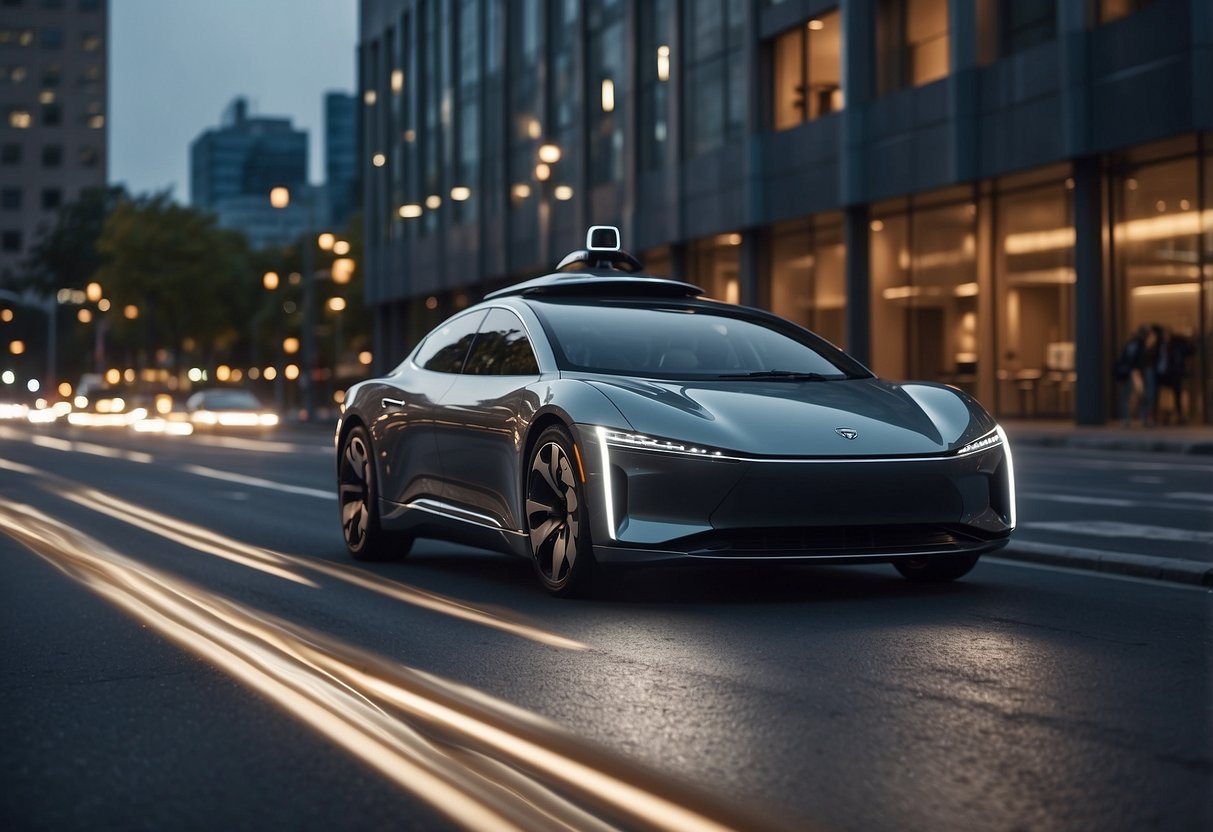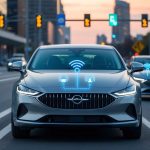
AI Integration in Electric Vehicles

AI plays a critical role in managing the efficiency and performance of electric vehicles. It enhances the battery management systems and optimizes energy consumption to improve the driving experience and extend the vehicle’s range.
Battery Management Systems
Battery management systems (BMS) in electric vehicles use AI to monitor and regulate battery health, ensuring optimal performance and longevity. AI algorithms analyze various parameters, such as temperature, voltage, and current, to predict and prevent potential issues.
These systems also use AI to balance the charge across all battery cells, maximizing efficiency and safety. Additionally, AI enables real-time diagnostics and predictive maintenance, which can alert drivers to potential failures before they occur, reducing downtime and repair costs. The integration of AI ensures that the batteries are used efficiently, extending their lifespan and maintaining vehicle reliability.
Optimization of Energy Consumption
AI helps optimize energy consumption in electric vehicles by learning from driving patterns and environmental conditions. By analyzing data, AI systems can adjust the vehicle’s powertrain settings, regenerative braking, and climate control systems to enhance energy efficiency.
For instance, AI can determine the most efficient driving routes based on traffic and terrain, reducing energy usage. The regenerative braking system can be adjusted to capture the maximum amount of energy during braking. Additionally, AI can adjust the climate control settings based on passenger preferences and external weather conditions to minimize energy drain.
This optimized energy management not only increases the vehicle’s range but also contributes to a more sustainable and cost-effective operation.
AI for In-Vehicle Personalization
AI enhances the driving experience by adapting entertainment options and optimizing comfort settings for each individual user. It transforms the way drivers and passengers interact with their vehicles, tailoring features to personal preferences.
Infotainment Systems
Infotainment systems use AI to provide highly customized experiences. By learning user habits, these systems can suggest playlists, radio stations, and navigation routes based on previous preferences. Voice recognition enables hands-free operation and responds to natural language commands, enhancing safety by minimizing distractions.
Additionally, AI-powered infotainment can integrate with personal devices, allowing seamless access to apps and contacts. It might also suggest nearby points of interest or restaurants based on past behavior and preferences. Updates happen in real-time, ensuring the information provided is always current and relevant.
Comfort and Settings Adjustment
AI adjusts seat positions, climate control, and mirror angles automatically based on who is driving. It remembers settings for multiple users, ensuring comfort and convenience. For instance, the car could pre-adjust the temperature to a preferred setting when a specific driver is detected via smartphone or key fob.
Lighting and audio levels can also be personalized, creating a more pleasant environment tailored to individual taste. The system might dim lights during nighttime driving or adjust sound levels based on ambient noise. By learning user habits and preferences, AI ensures the vehicle is always set up exactly as the driver likes it.



